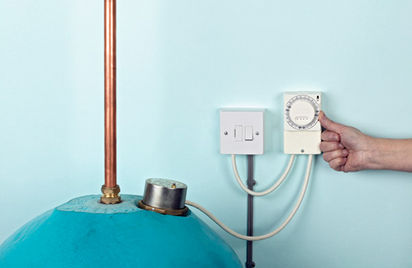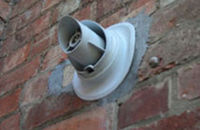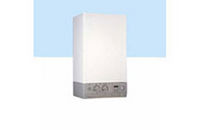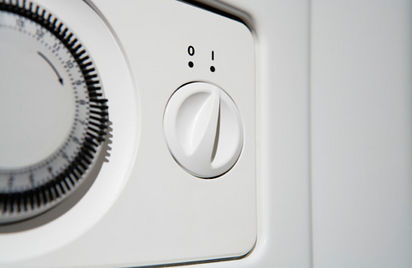 It might not be as exciting as the new Cappuccino Maker or the Wide Screen TV but the boiler is one of the most important pieces of technology in your home. 4Homes have got together with www.house.co.uk to bring you a guide to the world of hot water and warm homes.
It might not be as exciting as the new Cappuccino Maker or the Wide Screen TV but the boiler is one of the most important pieces of technology in your home. 4Homes have got together with www.house.co.uk to bring you a guide to the world of hot water and warm homes.
There's the mournful shaking of the head, the quick sucking in of air between the teeth and then the phrase every home owner dreads "Oooh dear. You're going to need a new boiler here and no mistake".
It's enough to strike a chill into the stoutest heart. However not only are boilers probably less expensive than you think they're also a key part of the home.
With a good boiler you can have a plentiful supply of heating and hot water provided efficiently and economically. An old or unsuitable boiler is likely to leave you with ever increasing heating bills, while making you vulnerable to a system that is unable to provide hot water to more than one outlet at the same time (we've all been there - the shower goes cold as someone starts doing the washing up in the kitchen) or packs up completely if someone dares try to have a bath while the heating is on.

The Energy Saving Trust recommend that you should think about replacing your boiler after 15 years. Whilst boilers beyond this age can often still function, their effectiveness and efficiency becomes reduced.
Boilers over fifteen years old can have an average efficiency of around 65%, this is compared to over 90% efficiency offered by "A" rated condensing boilers from British Gas.
The first thing to decide when choosing a boiler is what sort of fuel you're going to use - town gas, LPG (Liquified Petroleum Gas) or oil. Then you need to decide on the size of the boiler, measured in BTU (British Thermal Unit) or Kilowatts, the number of radiators, the type of hot water system and whether you're planning to upgrade your system.
How To Choose
It is important to take advice (preferably from a Gas Safe registered engineer for gas, or an OFTEC registered engineer for oil) before deciding which boiler is best for your home.
Don't install a boiler yourself. It must be installed by a qualified engineer and inspected regularly. It is not sufficient that the owner of the company be Gas Safe registered, the person fitting your boiler must be able to demonstrate that he/she is registered by showing ID before you permit access.
Once fitted you will need to have your system checked regularly. In the meantime you should know enough about the workings of the boiler to be able to spot any drop in water pressure which could damage your system.
You may wish to take out a service care agreement against any future problems with the system and be prepared for any unexpected emergencies.
If you haven't had your boiler replaced in the last 15 years you could do worse than replacing it with one of the new generation of high efficiency condensing combination boilers which could save you as much as 37p in every pound you spend on heating and hot water.*
*Source: SUDBUK boiler efficiency database, published as part of the Government's Energy Efficiency Best Practice Programme. Applies to energy-saving (condensing)boilers, depending on type of boiler being replaced and consumption. Based on the average life span of a boiler (15 years) in a standard three bedroom semi-detached house and on an average UK gas price of 1.41p/kWh as recommended by the Energy Saving Trust, December 2001.
Maintaining Your Heating System Tips From British Gas
- Ensure your central heating and gas appliances are serviced annually by a Gas Safe registered engineer.
- Never block or cover vents. Clear vents allow your gas appliances to breathe and burn safely and efficiently.
- Consider fitting a carbon monoxide detector in your property - one of these small, inexpensive devices could save your life. Maintained correctly, they will warn you if the carbon monoxide level in your home becomes dangerous.
- Although in the summer the weather may be warm and sunny, fire up your central heating system occasionally to keep it ticking over and prevent it from jamming when the cold sets in.
- Bleed your radiators every now and again to ensure they have no air in them. You'll know if they need bleeding as they may be cold at the top.
Types Of Boiler
Conventional Boilers
If you have a gravity heating system (with a water tank in the loft) then you'll need a conventional boiler. These use a traditional system which heats up a store of water before you need to use it, via a hot water cylinder and header tank
Condensing Boilers
Although more expensive than a conventional boiler a condensing boiler is highly efficient - using an extra heat exchanger to extract further heat from the water vapour produced in the combustion process, so very little heat is wasted.

Combination Boilers
For a flat or small house Combi Boilers are most suitable since they don't need to store water but instead heat the water as you use it.
Useful Links
There is no cylinder, no tank and no connecting pipe work, which saves space and reduces hot water costs. A combination boiler produces a near instantaneous supply of hot water on tap, 24 hours a day. Unlike conventional heating and hot water systems, a combination system does not store hot water.
British Gas
www.est.org.uk
The Boiler Efficiency Database
www.sedbuk.com
The Energy Saving Trust
The Energy Saving Trust
Gas Safe Register
DEFRA
www.defra.gov.uk


No comments:
Post a Comment